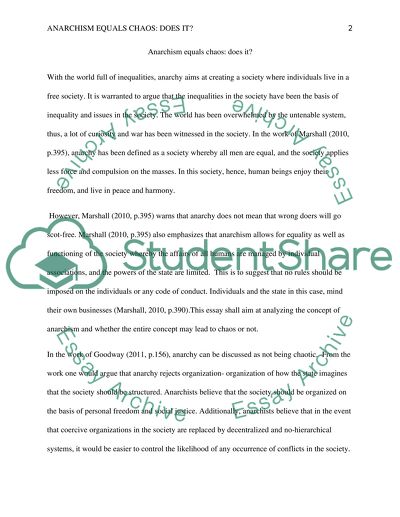Cite this document
(“Anarchism equals chaos: does it Essay Example | Topics and Well Written Essays - 1500 words”, n.d.)
Retrieved from https://studentshare.org/history/1467027-anarchism-equals-chaos-does-it
Retrieved from https://studentshare.org/history/1467027-anarchism-equals-chaos-does-it
(Anarchism Equals Chaos: Does It Essay Example | Topics and Well Written Essays - 1500 Words)
https://studentshare.org/history/1467027-anarchism-equals-chaos-does-it.
https://studentshare.org/history/1467027-anarchism-equals-chaos-does-it.
“Anarchism Equals Chaos: Does It Essay Example | Topics and Well Written Essays - 1500 Words”, n.d. https://studentshare.org/history/1467027-anarchism-equals-chaos-does-it.


